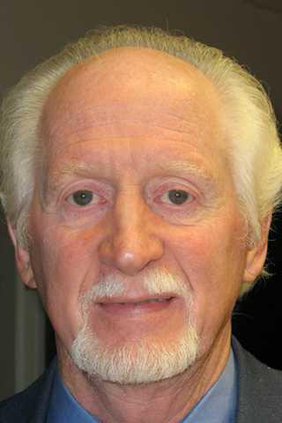A Gainesville man who heads an international humanitarian aid group has returned from Pakistan, where historic floods this summer displaced as many as 1.2 million people.
"We were able to carry out health care provisions and deliver food to about 12,000 people, feeding a family for about two weeks," said James E. Jennings, founder/president of Conscience International.
"The medical clinics are still ongoing and then we have another project for water purification."
The organization has been working in Pakistan for several years, especially in response to the Kashmir earthquake in 2005, Jennings said.
Then, in 2008 and 2009, "the fighting in north Pakistan along the Afghan border was so severe that almost 2 million people had to flee," he said.
"We were feeding people, providing blankets, tents, that sort of thing, during that period. After the floods happened, we had to launch a more massive effort and we set up two (relief) teams."
Flooding began in mid-summer in northwest Pakistan after exceptionally heavy monsoon rains.
The deluge slowly worked its way down the Indus River and its tributaries, washing over at least 7.4 million acres of farm land and destroying or damaging more than 1.8 million homes.
Jennings, who at one time worked in archaeological digs through the Middle East, founded Conscience International in 1991. His group has traveled the globe responding to crisis situations.
He also heads US Academics for Peace, which tries to engage in peace talks with government officials in countries where strife and division persist.
Jennings has led academic conferences at Baghdad University, Tehran University, the Iranian National University, Damascus University and Khartoum University.
He spoke to a security chief before making the trip to Pakistan.
"He said, ‘We need peace, so whatever you can do, we'll be glad to cooperate.' That was a plus, but in the villages, especially to the north, they all look like Taliban and they're very suspicious," Jennings said.
"They don't want to us to come there and spend the night, because it might provoke an incident. ... It's a hostile environment. But people realize you're there to help them, and generally they're pretty sensible about it."
The first of the mobile clinics was set up along the Sutluj River near the border with India, according to Conscience International's website.
Despite the clinic "working at near superhuman capacity, Dr. Jennings says that there are still lots of unmet medical needs," the site says.
Jennings, who was in Pakistan Oct. 3-16, said while he was there, Pakistani Taliban were attacking Allied fuel convoys traveling as part of the war effort, from the Indian Ocean up to mountainous border with Afghanistan and into Kabul, Afghanistan's capital.
He said he has no immediate plans to return to Pakistan.
Instead, he is focusing on a trip in November to Sudan, where his group is holding a conference on a Jan. 9 referendum that could split the country.
Southern Sudan and the region of Abyei are both set to decide whether they want to remain in a united Sudan or begin a new country in the south.
"The next big humanitarian crisis in the world, if there isn't another earthquake or tsunami, will be when the Sudan referendum happens and Sudan starts to fall apart," Jennings said.
"It's pretty much everybody's opinion that the vote will go against the central government ... and many people think (leaders) will start a war before that or right afterward."

